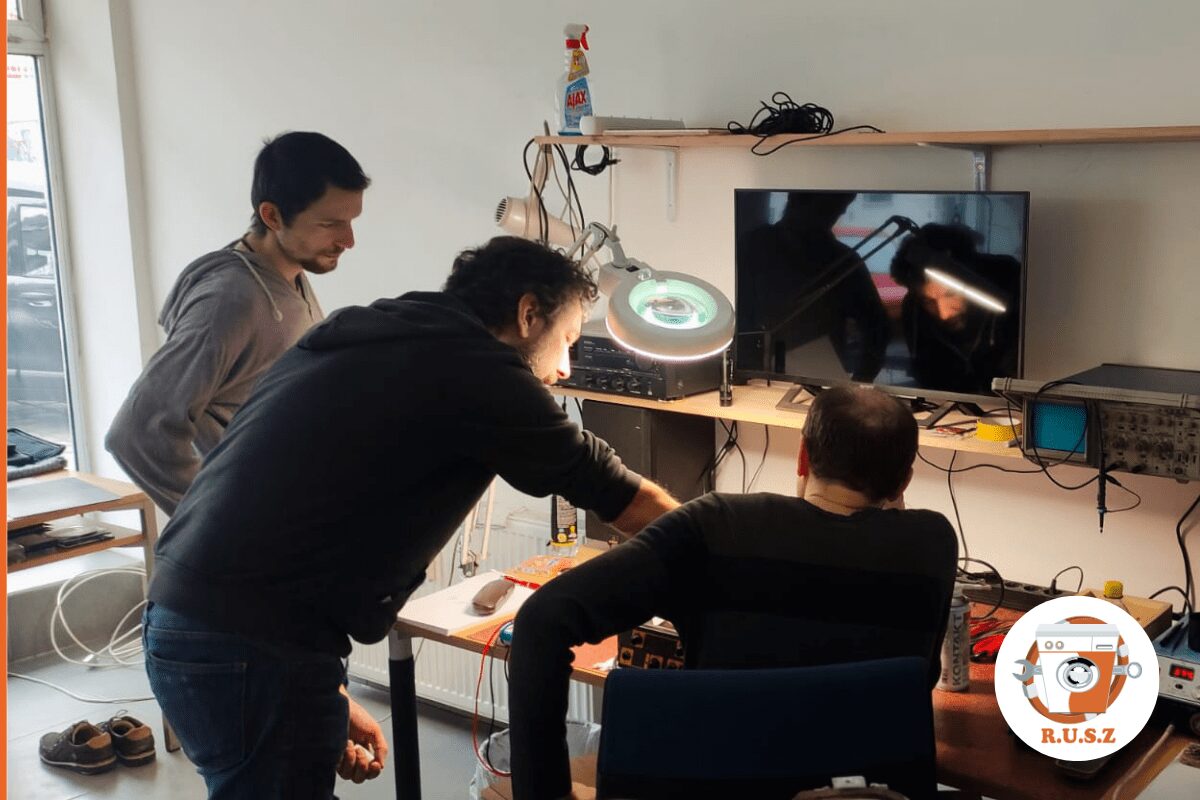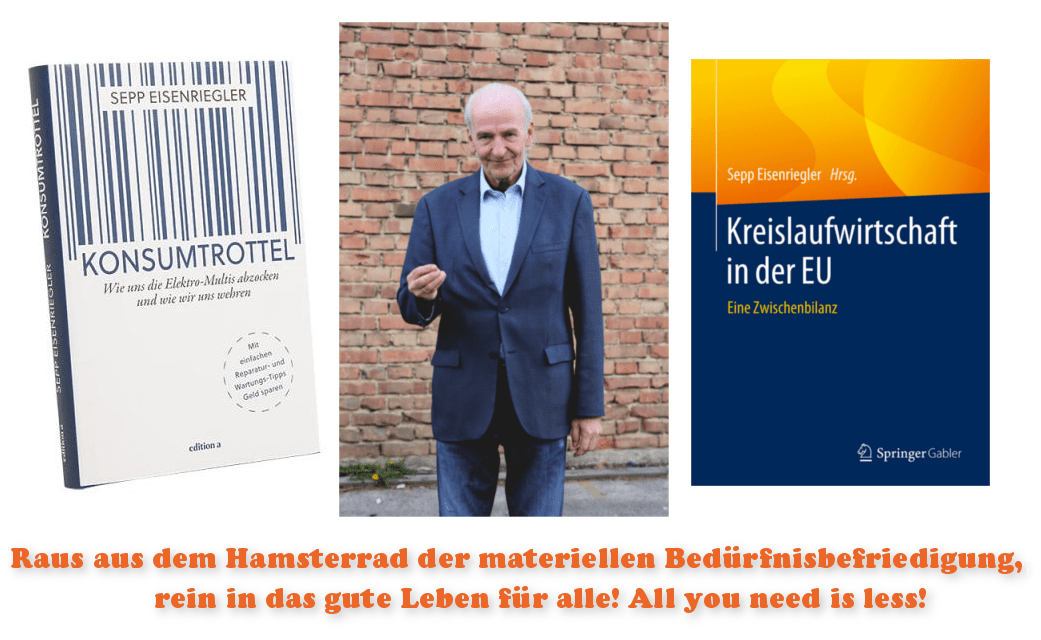For a quarter of a century, R.U.S.Z and its founder, repair lobbyist Sepp Eisenriegler, have been a driving force in the establishment of the circular economy in Austria and Europe! You can read about our contributions and our demands here.

What has the R.U.S.Z. contributed to the circular economy, in particular to climate-relevant resource conservation?
- 25 years of building up our repair expertise
- 25 years of lobbying in Brussels for resource efficiency
- Sepp Eisenrieglers Mitarbeit an der Umsetzung des Konzepts der Kreislaufwirtschaft
- Als Experte der EU-Kommission (12.000 Reparaturdaten an das Joint Research Centre der Europäischen Kommission)
- Als Sachverständiger im European Economic and Social Committee
- Leitende Funktion in der EU-Standardisierung (EN 45554:2020)
- Entwicklung von Testmethoden gegen vorzeitige Obsoleszenz (PROMPT-Projekt)
- Research & development for durable, easy-to-repair electrical appliances
- Aufbau einer seriösen Reparatur-Infrastruktur durch Social Franchising für privatwirtschaftliche Unternehmen, sozialintegrative Betriebe und Gemeinden/Regionen
- Weitergabe unseres Reparatur- und ReUse-Knowhows
- Weitergabe unseres umfassenden Knowhows mit dem Reparaturbonus
- Weitergabe unseres Reparatur-Administrations-Knowhows
- Projekte zur beruflichen Aus- und Weiterbildung von Reparatur-Fachkräften
- The impact of our repair services on resource conservation and biodiversity is unique because they are not just "CO2-neutral" but clearly CO2-positive
- It is now clear that the goals of the circular economy can only be achieved through durable, repair-friendly products and their longer use through maintenance and repair. That is why we need a small number of durable, easily repairable electrical appliances that spread their ecological rucksack over many years through decades of use!
- Numerous prizes and awards
R.U.S.Z. demands
"Our consumer behaviour is to a large extent a product of marketing strategists, which advertising psychologists have established in our minds as our own desire. We may believe that we consume what we consume because we want to. That may even be true - we just don't know why we want it."
(Eisenriegler Sepp: Konsumtrottel. Wie uns die Elektro-Multis abzocken und wie wir uns wehren. Edition a, Wien 2016. ISBN 978-3-99001-183-6. S 59)
What we need now: few, durable, easily and inexpensively repairable products and manufacturers who offer product services based on the principle of using instead of buying. Sustainable consumption in terms of clean laundry means, for example, that instead of owning a disposable washing machine (which is cheap in the short term and expensive in the long term), we have affordable access to a serviced quality washing machine as part of a rental or sharing model.
Our growth-driven economic system has become obsolete and threatens the livelihoods of the human species. For decades, raw materials in the global South and people in emerging countries have been exploited to enable the consumer idiots in the global North to buy junk products supposedly cheaply, value them accordingly and throw them away quickly. And they don't even realise that they pay twice as much for washing with disposable washing machines, for example, as they do for washing with quality appliances.
The strategic vision of sustainability instead of growth can only work through:
- Implementation of an EU-wide, socially balanced, genuine ecological tax reform: (critical) raw materials and CO2 emissions must be taxed, labour costs must be reduced
- Enforce EU-wide regulation of advertising that prohibits the emotionalisation of advertising and creates effective measures against greenwashing: Advertising is appropriate if it balances out the existing information asymmetry between manufacturers and end users. Advertising has a destructive effect when it uses emotional messages to encourage irrational overconsumption
- Ensure that we do not "translate" the circular economy with recycling: top priority is given to avoidance and reuse measures. Only when nothing else works is material recycling for the energy-intensive processing of secondary raw materials and their use in new production a sensible option
Until then, we need:
- Introduction of an EU-wide repair bonus to counter existing market failures
- Standardisation of components to improve the availability of spare parts and reduce costs
- Guarantee that the information contained in the future digital product passport will also be available free of charge to the repair and reuse sector
- Creation of financial incentives for the development of reuse and repair activities of smaller companies and networks in the circular economy (repair bonus, VAT reduction, reduction of employer contributions)
- Prohibition of subsidies (scrapping premiums) for the premature replacement of functioning appliances, e.g. for reasons of energy efficiency, which is grossly overestimated. What really counts is resource efficiency
Summary
We need to get off the hamster wheel of satisfying material needs and turn our attention to a good life for everyone!
